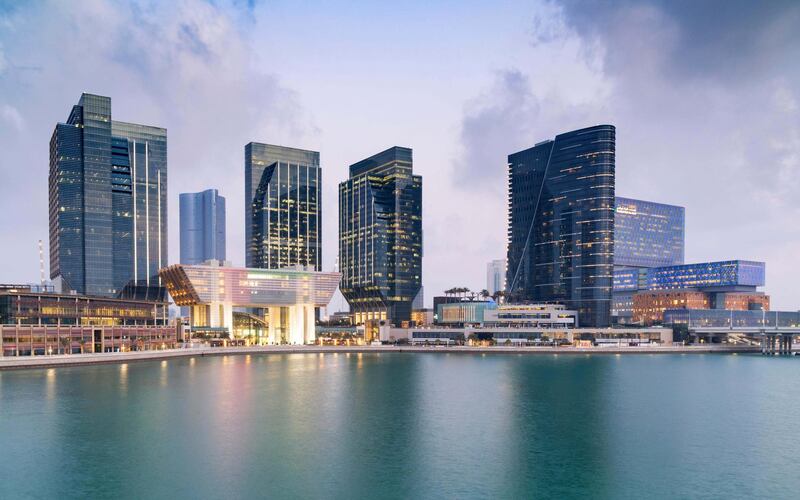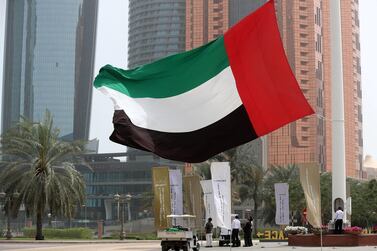The UAE economy is expected to pick up growth momentum by 2020, driven by higher public spending in Abu Dhabi and the emirate’s strong credit profile on the back of the country's stable sovereign rating and and economic diversification measures, according to a report by Moody’s Investors Service.
The UAE’s gross domestic product growth will accelerate to 3 per cent by next year, supported by “expectations of continuous financial support from the Abu Dhabi government”.
Abu Dhabi, which accounts for the largest share of government spending in the UAE, is removing subsidy cuts and loosening fiscal policy – all of which will have a positive impact on the economy from next year, the report added.
“Our stable outlook indicates that the risks to the UAE’s sovereign ratings are broadly balanced,” said Thaddeus Best, an analyst at Moody’s and co-author of the report.
“Its credit profile is supported by the stable outlook on the Abu Dhabi sovereign rating and upside potential from diversification efforts.”
In March, Moody’s affirmed the long-term issuer rating of the UAE government and the emirate of Abu Dhabi at Aa2, based on the sovereign’s fiscal strength, very low government debt and vast sovereign assets.
The outlook for the federal government and emirate of Abu Dhabi remains stable, Moody’s said the time. The UAE rating is supported by “strong credit fundamentals including very high fiscal strength, broadly balanced budget, negligible or very low federal government debt, high wealth levels and robust institutions”, the rating agency noted.
The International Monetary Fund in April projected the UAE’s GDP growth to rise to 2.8 per cent in 2019, up from 1.7 per cent in 2018, but down from its earlier forecast of 3.6 per cent at the start of the year. The IMF attributed the downward revision to headwinds from tighter global financial conditions, which have squeezed overall liquidity and acted as a drag on non-oil growth in the UAE and other countries across the region.
The country’s real GDP growth is expected to remain modest in 2019 due to Opec production cuts and subdued non-oil sector activity in the Middle East and beyond, but will accelerate from 2020, said Moody’s annual report on the Emirates, published this week.
High relative income levels, resource endowment and competitiveness underpin the UAE’s economic strength, the report said. The country edged up two notches to fifth place out of 63 countries in the IMD World Competitiveness Rankings last week.
In addition, Expo 2020–related spending in Dubai, as well as Abu Dhabi’s Dh50 billion fiscal stimulus – which is being rolled out from this year to boost the private sector non-oil economy – is expected support near-term growth. At the same time, the implementation of VAT in January last year has expanded the government’s non-oil revenue base.







